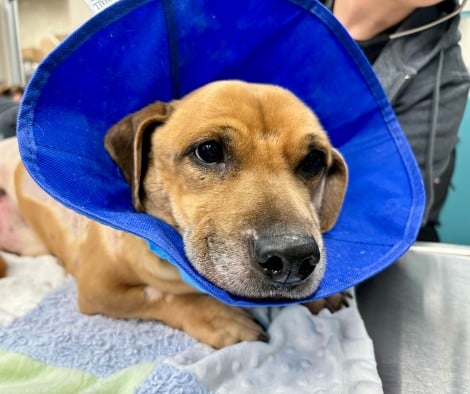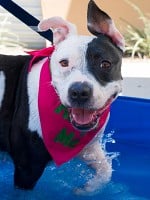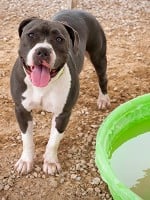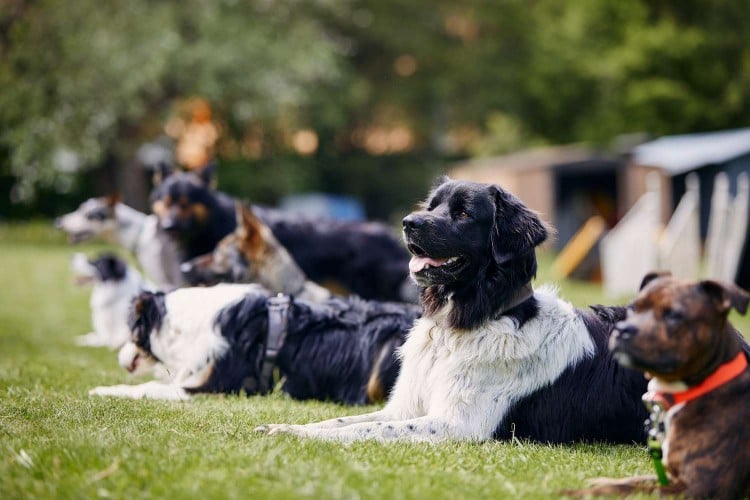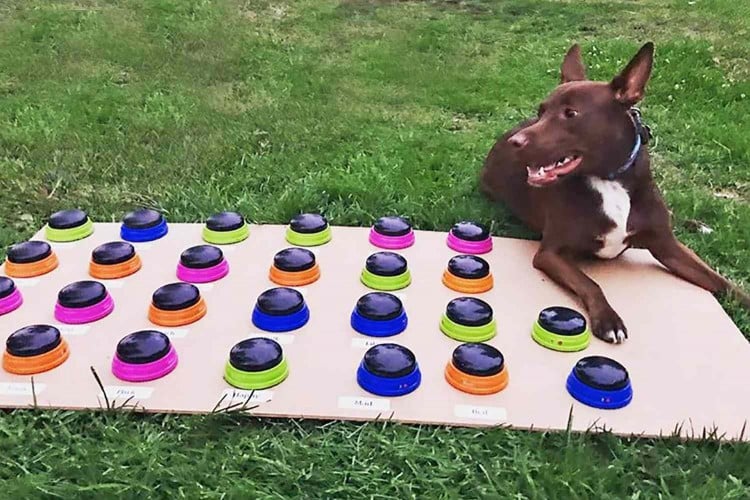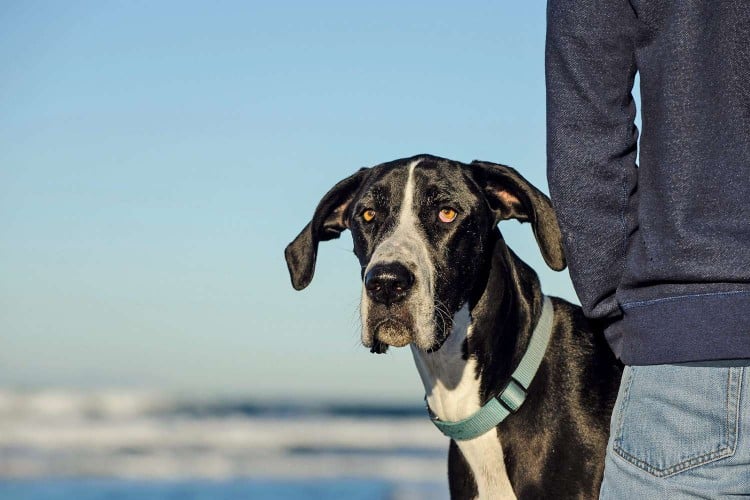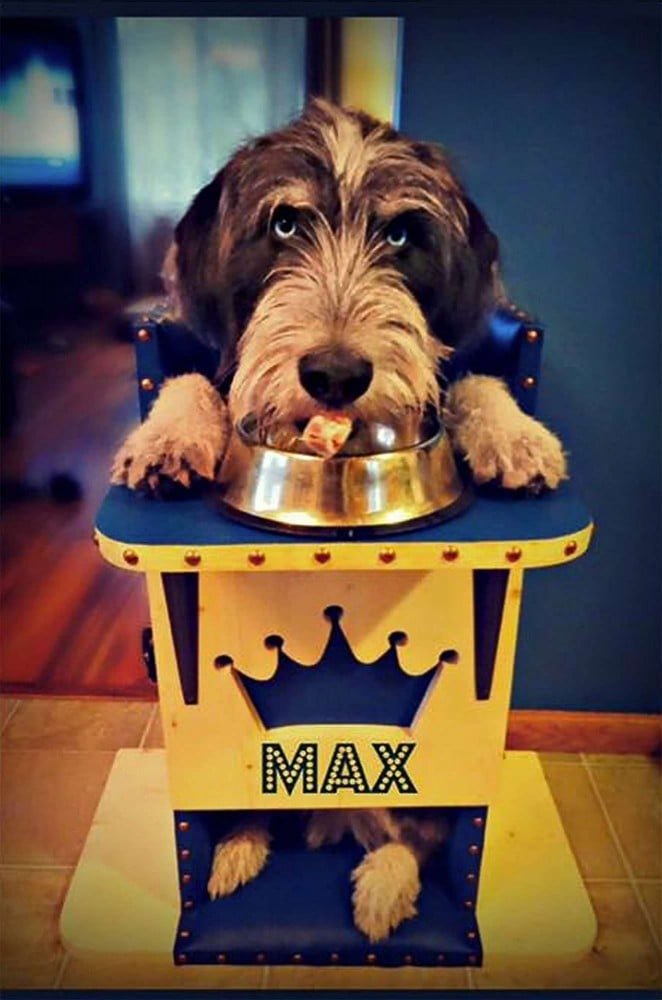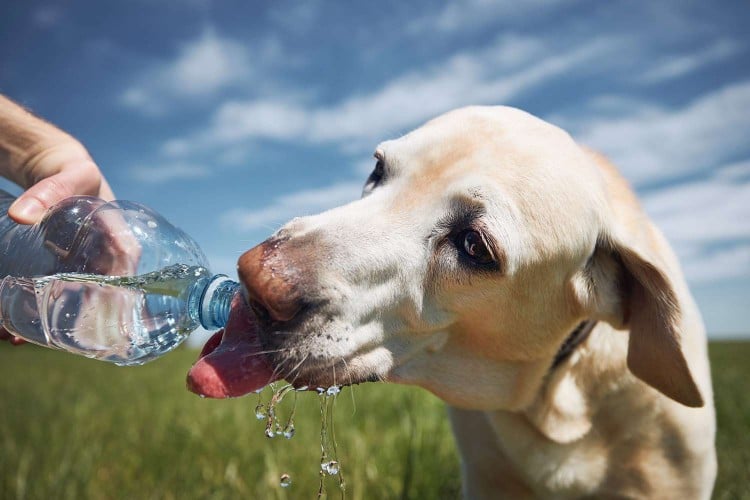You Probably Should've Enrolled in Puppy Kindergarten Already
You may think it’s unnecessary—or understandably worry about another dog-related expense—but you don’t want to miss the crucial socialization period for your puppy. Socialization is a lifelong process, so don’t stop introducing your dog to new things once she’s grown, but it’s especially important for pups to meet other humans, places, things, and dogs.
Alison Schramel, the animal behavior and training supervisor at the Animal Humane Society in Minnesota, says puppies need that exposure when they’re between 3 weeks and 3 months old. Because most puppy owners will bring their dogs home around the 8-week mark, they only have about a month left in that window.
“That’s the critical time period where puppies—they’re like little sponges,” Schramel says.
It’ll pay off in the long run.
Why Puppy Kindergarten Is Important
Your puppy needs to socialize with other dogs and learn how to interact with different people and places she may see during her life. Not doing so can make your dog timid, afraid, or worse.
“If they aren’t creating positive associations with different kinds of people, animals, sounds, environments, that can create a fearful adult dog and almost all aggressive behaviors can stem from fear,” Schramel says.
At the Animal Humane Society’s puppy kindergarten, dogs meet people in hats and in wheelchairs, getting used to how humans can come in different shapes or sizes. They also learn how other dogs play as they tussle with their classmates.
Schramel says the society also puts on “hard surfaces week” for the puppy classes. The puppies will walk on bubble wrap and metal to get used to different walking surfaces and run through tunnels because, well, they’re fun. They explore and then receive treats, giving them a positive result for trying the new things.
Jennifer Summerfield. veterinarian
Ultimately, here is the bottom line: The single most vital lesson a puppy can learn is that the world is a safe place
— Jennifer Summerfield. veterinarian
If you’re looking for a puppy kindergarten class, Schramel recommends you enroll in one that offers a wide variety of stimuli for your pup. She advises reserving your spot before you even bring your puppy home. She cautioned that so many people getting dogs during the COVID-19 pandemic has made it harder to reserve training spots.
Puppy Kindergarten Isn’t Obedience Training
Some puppy kindergarten classes might introduce a few cues like sit, down and stay, but they’re primarily for puppy socialization, Schramel says. Skills training is where you use positive reinforcement to teach your pup to come, sit, and stay.
“Ultimately, here is the bottom line: The single most vital lesson a puppy can learn is that the world is a safe place,” she writes. “That strangers mean him no harm, that other dogs are not scary, that grooming tools and exam tables are fun. It’s no exaggeration to say that this one lesson, if learned well, will make everything else you do with him for the rest of his life exponentially easier.”
Alternatives To Puppy Kindergarten
Four to six weeks of puppy kindergarten can cost about $100 or more, and that might seem like too much after buying hundreds of dollars of puppy supplies.
Schramel says the next best thing you can do is to find a local trainer who employs positive reinforcement training methods. They might have a low-cost or free seminar that can help you socialize your pup.
She also recommends reading any puppy books that might give you an idea of how to provide your own kind of puppy kindergarten. That way, you can safely introduce your puppy to new people and objects, rewarding her with a treat to give her that positive association.
Then, you can enjoy years together exploring the outside world.

